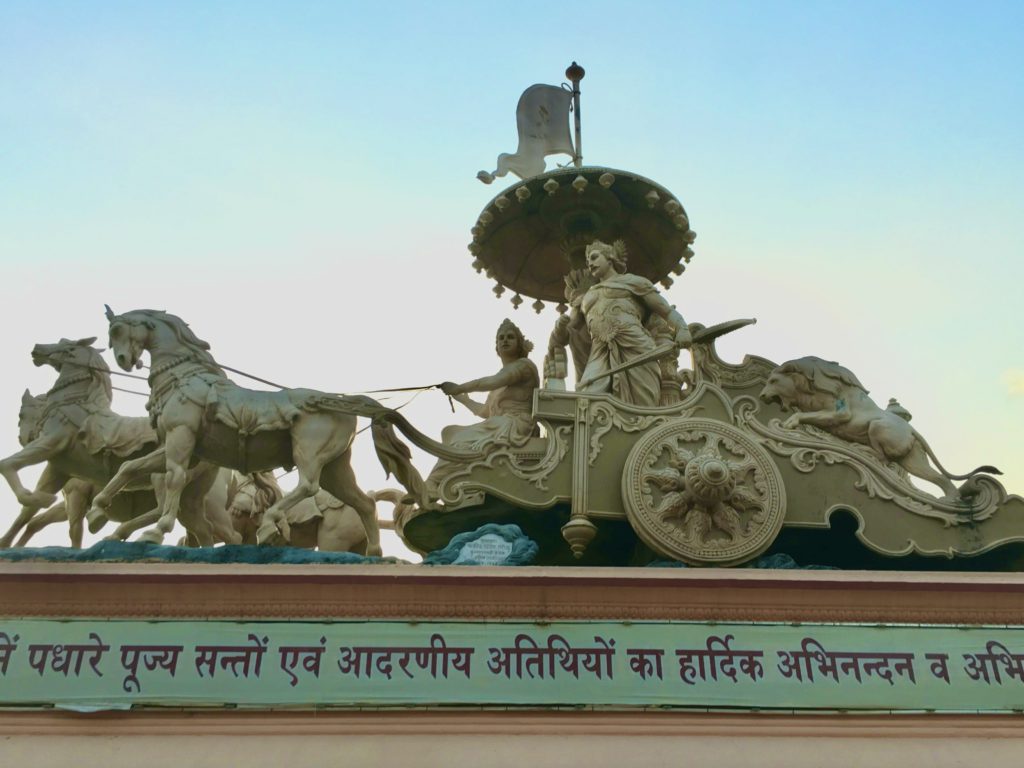In the Bhagavad Gita, Krishna says to Arjuna: ‘By devotion to selfless work one attains the supreme goal in life’.
Give yourself a moment to think about this. Then ask yourself: when was the last time you did not expected anything from your actions? Can you recall the last time you have done something only for the sake of doing it? Are the actions you are doing right now motivated by any expectation of what you can get from them?
Yes, it might feel strange to ask yourself these questions. In the first place, why would you do something if you didn’t expect anything from that action? What would be the motivation to do it then?
The constant pull of expectations
Expectations are more powerful in us than we think. Most of the time, we desire and decide to do something out of our expectations. We decide to have a cup of coffee in the morning out of our expectations on how it will taste and make us feel. We decide to enroll into a training program out of our expectations about what we will learn from it. We decide to call a friend to maintain a valued relationship. We are, without being aware, in a constant pursuit of outcomes and rewards from the actions we take in our life.
The majority of our life is driven by expectations and it is natural to have them. However, they can become a burden when we try to fit our life within the limited scope of our expectations. Also, when we expect a specific outcome from an action, we are inviting frustration into our lives. Whatever falls outside the act-consequence pattern we have learned and integrated in our minds during our lives will make us feel miserable. What was all this effort for? We will wonder. Anxiety will become the constant partner of our actions, and the fear of failing and not achieving what we want will become more prominent than the transitory feeling of success.
Freedom from expectations
Therefore, it is not strange that most religions have talked about and made so much emphasis on the attitude of being selfless. In Hinduism, the conscious effort of freeing ourselves from any expectations when doing our actions is called ‘karma yoga’. For Krishna, this is the mark of selfless actions, and the Bhagavad Gita aims to encourage the reader to take this path to achieve the ultimate goal in life.
In the text, we can see that selfless actions are those that are free from the attachment of gaining ‘fruits’ from our actions. They don’t stem from a mentality of benefit or gain. That’s because they are undertaken without expecting anything in return, including the recognition from others that we are acting selflessly. If you only act for the sake of the action itself, there is nothing that you will expect in the next moment. Being free from the desire for success and reward, you will also be free from anxiety, anger, and fear.
There is no ‘middle way’
We all may occasionally do selfless actions in our lives. But what if that becomes our constant attitude? That might sound ridiculous for some people. It is certainly not possible to understand that with the mentality of benefit, productivity, and gain so embedded in our social and economic structures.
However, if you reflect for a moment, you’ll realize that there are only two fundamental attitudes we can live from, two basic starting points of all our actions. We can either act from the ego and therefore from selfish desires, or from a selfless space. In other words, if you are not acting selflessly, you are acting selflishly, and that is when the ‘drama’ of our life starts.
Hence, from my point of view, there is no middle way in the path of ‘karma yoga’. Are you ready to walk this path and discover a direct route to contentment and fulfillment?
If you want to start a journey towards yourself, join our online self-development program, and download our Mind stories app.


